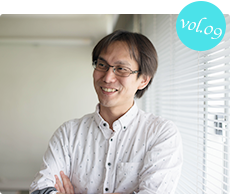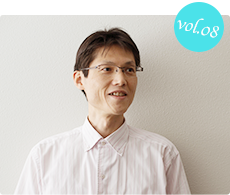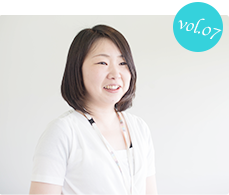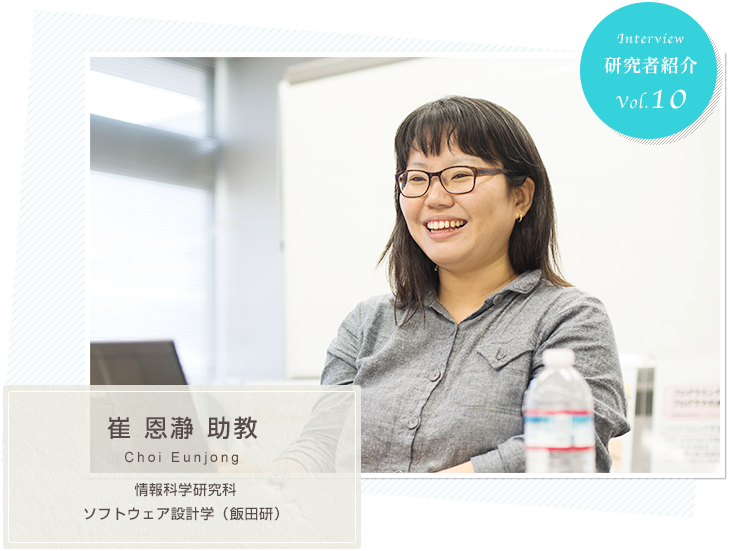
![]()
D., Graduate School of Information Science, Osaka University, 2015. Ph.D. in Information Science. After working as an assistant professor at the Graduate School of International Public Policy, Osaka University in the same year, she became an assistant professor of software design at the Graduate School of Information Science, Nara Institute of Science and Technology in April 2016. She specializes in software engineering. Her current research focuses on supporting software maintenance based on source code analysis information.
Path to becoming a researcher
I majored in multimedia at a university in Korea and worked at a research institute after graduation, but I have loved programming since I was an undergraduate. My father had lived abroad for work before his marriage, and from a young age he told us sisters to look not only at Korea, but also at other countries. Japan is close to Korea, and since my sister was studying Japanese, I studied Japanese with her as well, so I could speak Japanese. My parents encouraged me to get a job in Japan.
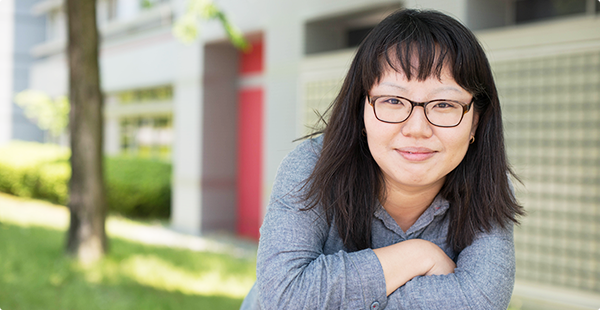
After I came to Japan, I worked for about three years at a logistics systems company, developing and maintaining software systems. From this experience, I began to think that I wanted to support software system development and maintenance work, so I first joined the Graduate School of Information Science and Technology at Osaka University as a research student. Then I enrolled in the master's program and advanced to the Ph.D. program at the Graduate School of International Public Policy at Osaka University, where I taught information fundamentals to undergraduates and worked as a server administrator. The Graduate School of International Public Policy was similar to our university, with many researchers from abroad, and I liked the free atmosphere, but I also felt that it was a little different from my field, so I applied to our university and ended up at the Iida Institute.
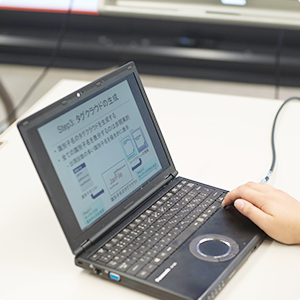
I decided to become a researcher because I wanted to improve the development and maintenance of software systems by using my experience working in a company. The first is to propose tools and methods to efficiently support the development and maintenance of real software systems, and the second is to educate students. In other words, I want to use my corporate experience to efficiently support the development and maintenance of software systems. I also want to help improve the development and maintenance of software systems in companies by training software engineering professionals and sending them out into the world.
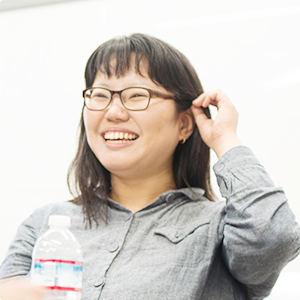
Daily work-life balance
My husband is a researcher in the same field, and we talk about research and student education when we are at home. Maybe it's a bad thing that we understand each other's situation so well, but I work without having to ask, "Why are you working when you're home? I work without having to say that I am not. We also travel together, and we often talk about research and other topics even when we are on vacation (laughs).
On a day-to-day basis, I prepare and eat dinner with my husband, who comes home at 8:30 pm. My husband is in charge of cleaning up, sweeping, and taking out the garbage. On weekends, we visit my husband's parents in Nara Prefecture, go shopping, and cook and eat together. I am reassured that if my husband's parents need care in the future, TUAT has a system to support both of us, such as a caregiver leave system.
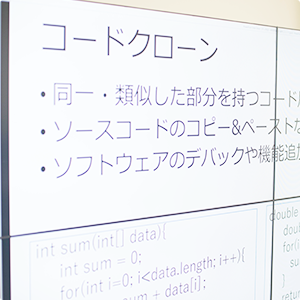
I am not a man or a woman, I am a human being
In terms of work, I don't think I have ever felt that I was treated unfairly because I am a woman. It is important for me to be able to do good research.
I took a path that was the opposite of the path that women were supposed to take. I was told that women should pursue liberal arts, so I pursued science, and I was told that women should not become researchers, so I became a researcher... I have lived my life with an aversion to the "shoulds" directed at women. In fact, in Korea I was never told what I should do because I am a woman, and I lived freely, so I was surprised when I came to Japan and was told that I should not do such things because I am a woman. I want to continue to do my best without worrying about the boundaries of being a "woman" or a "man.
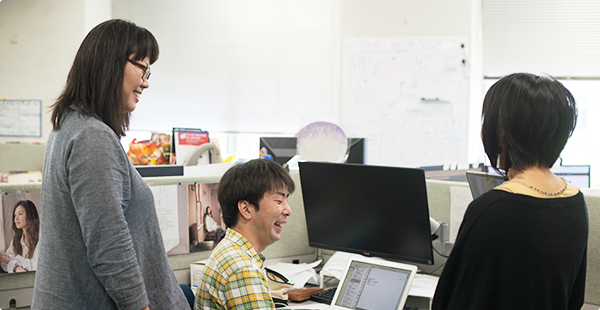
To the parents of women who aspire to be researchers
Instead of women who aspire to be researchers doing their best, I think the parent generation must do their best to change their own perceptions. My sisters and I had the support of our parents. However, when women try to go their own way, their parents sometimes oppose or discourage them, telling them that they should not do so much because they are women, or that they should get married as soon as possible. I think this perception needs to change.
The field of research is a world where you can advance on your own merit. In other fields, you might be discriminated against because you are a woman, but not in research. I think it is worth challenging yourself and going for it.

(June, 2017)

-
2017.6 updated
Division of Biological Science
-
2017.6 updated
Division of Biological Science
-
2017.6 updated
Division of Information Science






